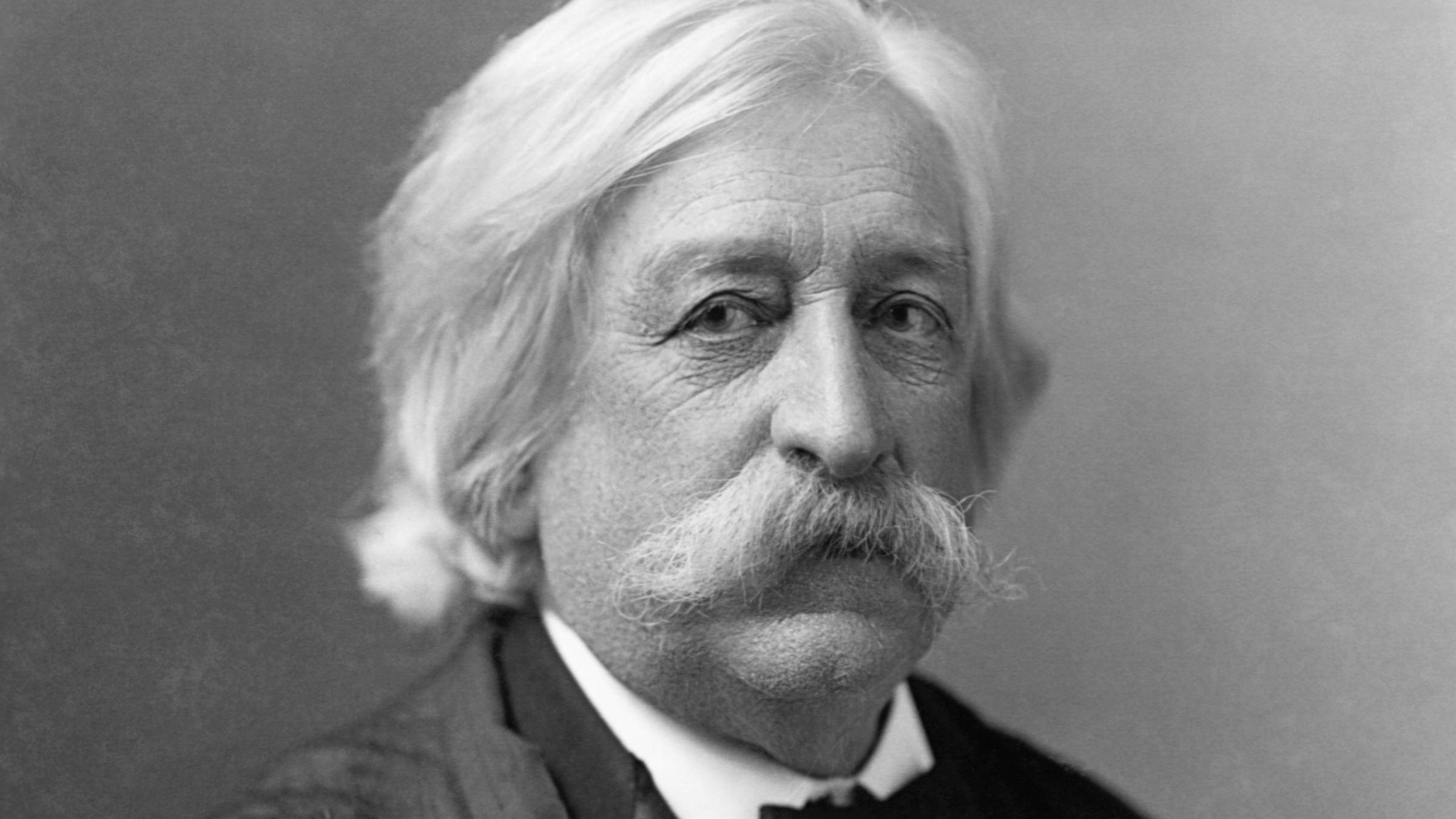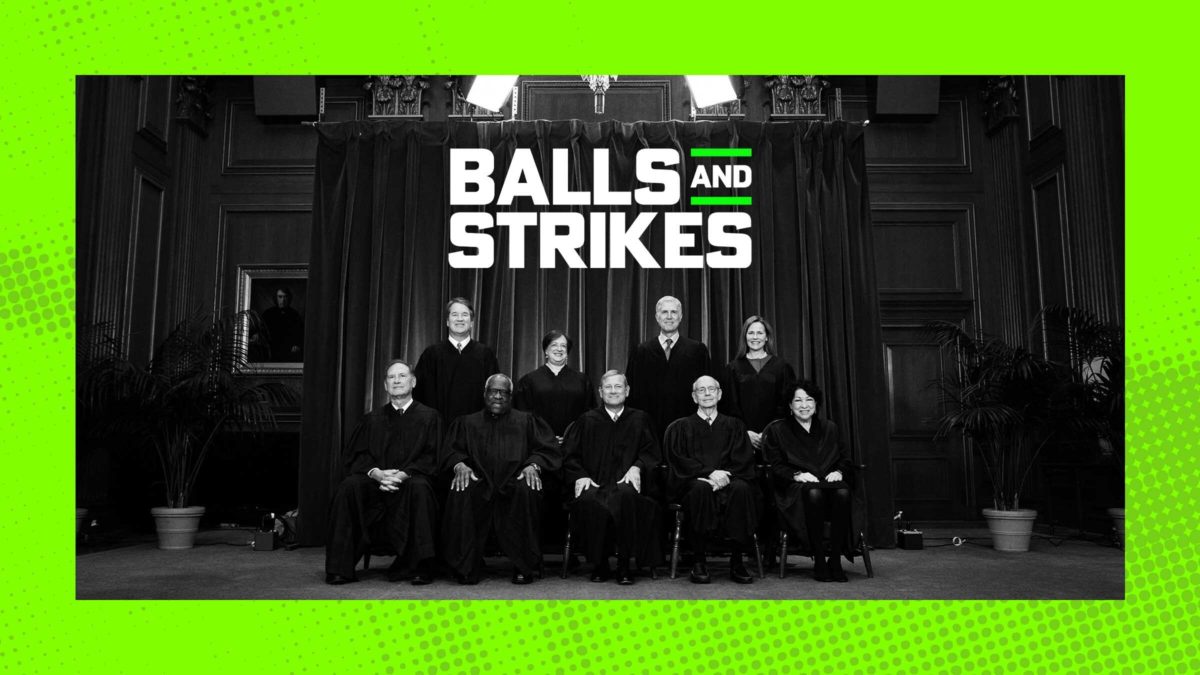During a speech at the annual Notre Dame Religious Liberty Summit in Rome last month, Justice Samuel Alito debuted a look that I would describe as at least as unsettling as the presumed contents of his YouTube search history: an honest-to-God beard. One-ninth of the most powerful court in America is out here looking like a surly French movie director getting played off the Oscars stage because his acceptance speech just veered into “cancel culture has destroyed the art of filmmaking” territory.
Clip via YouTube
The Court’s reactionary crank wing has long experimented with misadventures in facial hair. For a brief period in the mid-1990s, Antonin Scalia was as opposed to shaving his face as he was to acknowledging the existence of civil rights. During his 1991 confirmation hearings, Clarence Thomas sported a mustache as thin as his defense against the credible allegations of sexual harassment leveled at him, which he dismissed as a “high-tech lynching.” More recently, Neil Gorsuch uncorked a pandemic beard in September 2020, perhaps as part of his Anti-Choice Donald Sutherland From The Hunger Games Halloween costume.
Justice Gorsuch debuts a pandemic beard on Constitution Day pic.twitter.com/v6U1i5p0a4
— Adam Liptak (@adamliptak) September 17, 2020
Yet none of these dudes endured nearly as much blowback for their stylistic choices as Melville Fuller, who served as Chief Justice of the United States from 1888 to 1910. Fuller joined some of the most egregiously racist opinions issued by the already-pretty-racist post-Reconstruction Court, including Williams v. Mississippi, which held that state-sanctioned racism was fine as long as lawmakers were careful not to use the phrase “and this rule only applies to Black people,” and Plessy v. Ferguson, which gave the green light to decades of Jim Crow segregation and violence throughout the South. Fuller also wrote the majority opinion in Pollock v. Farmers’ Loan & Trust Company, an 1895 decision that invalidated a federal income tax and was so hilariously unpopular that it spurred the ratification of a constitutional amendment to overturn it.
As detailed by Roanoke College professor Todd Peppers in a 2020 review of contemporary news reports, however, Fuller’s flowing white mustache—described by one observer as “uncommonly luxuriant and beautiful”—was perhaps the most controversial aspect of his tenure. Citing an alleged tradition of clean-shaven chief justices, the Leavenworth Standard responded to Fuller’s nomination by asserting that if he were confirmed, his mustache would “do violence to the dignity of the court” and “be a shock to the reverend judges who have such respect for precedent.”

You know how some people start looking like their pets? What I am saying here is that Melville Fuller definitely had cats, right? (Photo by © CORBIS/Corbis via Getty Images)
Even after Fuller’s confirmation—few senators apparently took advice from the Leavenworth Standard—editorial boards continued to find reasons to dedicate column inches to his mustache in the years that followed. Much like Bari Weiss churning out another meandering Substack newsletter about the death of free speech at Ivy League universities, the New York Sun in particular seemed incapable of writing about anything else. As Pepper notes, the Sun once quipped that if Lady Justice weren’t blind, the mere sight of Fuller’s face would prompt her to “beat her sword into a razor.” It also theorized that the physical resemblance between Fuller’s mustache and a bald eagle statue in the courtroom might be distracting attorneys during Supreme Court oral arguments, which is spin that I’d love to see a losing lawyer try and pull off with their irate client.
By 1890, enough people were upset about Fuller’s facial hair that, per the Nebraska State Journal, the chief justice sometimes received “threatening letters” from fastidious, semiliterate weirdos who demanded that he comply with their very specific feelings about proper male grooming aesthetics. “Ef yer doant shave of that there hary main on yer mout weal sea that yer doant have no eazy time,” one allegedly real letter read, in prose only slightly less accessible than your average Brett Kavanaugh opinion. “Wee’l shave it of fer yer pretty soon. Take worning.”
Fortunately for Fuller, the confirmations of several more justices with facial hair gave him some hirsute company at the office, and the 1888 nomination of Oliver Wendell Holmes Jr., who is what would happen if a walrus earned a law degree, ended this dumb pseudodebate for good. (Pepper hypothesizes that the Sun’s quixotic obsession with this story was the tongue-in-scruffy-cheek product of its editor’s “playful sense of humor.”) Today, it is hard to imagine anyone seriously worrying that a “Sam Alito grew a halfhearted vacation beard” story will sully the Court’s reputation. These days, my guy is doing enough of that as it is.
As always, you can find us at ballsandstrikes.org, or follow us on Twitter @ballsstrikes, or get in touch via [email protected]. Thanks for reading.
This Week In Balls & Strikes
Federal Courts Stacked With Trump Judges Are Giving Texas Whatever It Wants, Rhiannon Hamam
Conservatives worked for decades to control the federal bench. Texas AG Ken Paxton is reaping the rewards.
Absolute Immunity: Like Qualified Immunity, But Somehow Even Worse, Lisa Needham
A recent Eighth Circuit case extends generous protections to cops who break the law while detailed to federal task forces.
The “Imperial Supreme Court” Is Just Getting Started, Yvette Borja
A new law review article identifies a throughline of the Court’s recent decisions: the justices’ single-minded commitment to consolidating political power in themselves.
This Week In Other Stuff We Appreciated
The Court’s Liberals Still Have Power, Joshua Braver, The Atlantic
Liberal justices have long pulled punches in their opinions. They can’t do so any longer.
In Justice Alito’s America, Who Defines Family?, Amy Hagstrom Miller, Andrea Ferrigno and Marva Sadler, Elle
Abortion providers warn that the conservative legal movement has much more than abortion access in its sights.
American Democracy Was Never Designed to Be Democratic, Louis Menard, The New Yorker
The Supreme Court’s anti-voting jurisprudence is the product of a nation organized around keeping the “wrong” people out of the governing process.
Undocumented People Struggle to Access Reproductive Care Due to Militarization of Arizona Borderlands, María Inés Taracena, Prism
In the wake of Dobbs, pregnant people across the country are facing limits on access to abortion care that people of color in Arizona have experienced for years.
This Week In Obscure Photos of Supreme Court Justices On Getty Images


